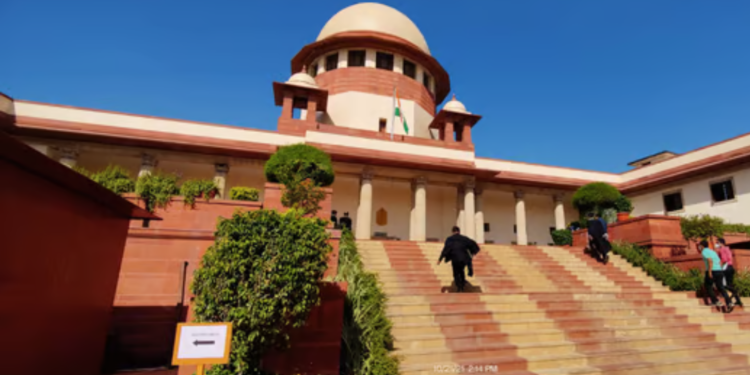The Supreme Court on Tuesday directed the Chief Justice of the Bombay High Court to form a bench to initiate suo motu proceedings for an audit of the Maharashtra Slum Areas (Improvement, Clearance, and Redevelopment) Act, 1971, in the case [Yash Developers v. Harihar Krupa Co-operative Housing Society Limited & Ors].
A bench comprising Justices PS Narasimha and Aravind Kumar emphasized that constitutional courts have the authority to order such audits through judicial review.
“Assessing the effectiveness of a statute to determine if its objectives are being met is an implicit duty of the executive government. Reviewing and evaluating the implementation of laws is a fundamental aspect of the Rule of Law. Recognizing this responsibility, constitutional courts have directed governments to conduct performance audits of statutes.”
The Court also highlighted that failing to adapt laws to changing circumstances constitutes an abuse of power by the executive. It stated that legal reforms improve the legal system, necessitating a review of a law’s operation, accessibility, utility, and potential for abuse. The Executive is constitutionally required to ensure that the goals of a statute are achieved during its implementation and must continuously monitor and assess the statute’s impact in real-time. The purpose of such reviews is to ensure that laws function as intended and to quickly address any issues.
The judgment noted that these audits can reveal flaws and help eliminate weaknesses in the functioning of statutes.
The Court also mentioned the judiciary’s role in facilitating access to justice and ensuring the effective operation of constitutional bodies. In this capacity, the judiciary does not review executive and legislative actions but rather encourages and supports systemic reforms.
The need for such audits is especially important in a system where most legislation is passed by the government, with few private members’ bills being introduced or debated.
The directive for an audit should be based on clear judicial data or other substantial evidence indicating that statutory schemes and procedures are being hindered by bureaucratic or judicial delays that obstruct or slow down their intended objectives.
“This facilitative role of the judiciary encourages the auditing of legislation, promotes debate and discussion, but cannot compel legislative reforms,” the Court clarified.
The observations were made while resolving a long-standing dispute between Yash Developers and Harihar Krupa Co-operative Housing Society. The case, ongoing for over 20 years, involved the redevelopment of a slum area in Borivali, Mumbai, under the Maharashtra Slum Areas Act of 1971.
Yash Developers had been appointed to rehabilitate the slum dwellers, but the project faced numerous delays due to litigation, environmental clearances, and lack of cooperation from some slum dwellers. The development agreement was eventually terminated by the Apex Grievance Redressal Committee in 2021, a decision upheld by the Bombay High Court in 2022. This led to the current appeal.
The Supreme Court criticized both the developer and the relevant authorities for their roles in the delays and stressed the need for accountability and efficient implementation of slum rehabilitation schemes.
While upholding the High Court’s decision, the Supreme Court called for a performance audit of the 1971 Act.
To facilitate this, the Court asked the Bombay High Court Chief Justice to establish a bench to initiate suo motu proceedings to review the statute’s functioning. This bench will hear from the government, statutory authorities, other relevant stakeholders, and some senior members of the Bar before deciding whether an audit of the statute is necessary.
The Court pointed out several reasons for the review, noting that even the High Court was genuinely “exasperated” with the Act’s functioning:
Identification and declaration of land as a slum: This involves evaluating the role of authorities in granting such recognition, with concerns over possible builder influence affecting the independence and integrity of the decision-making process.
Identification of slum dwellers: The process is complex, with issues like groupism leading to competing claims and inevitable litigation.
Selection of a developer: The Act leaves this decision to the cooperative society of slum dwellers, but majority decisions are often manipulated by rival developers.
Apportionment of slum land between redevelopment area and sale area: Developers frequently seek to increase the proportion of saleable land, leading to disputes.
Obligation to provide transit accommodation for slum dwellers pending redevelopment: Developers often fail to provide timely or adequate transit accommodations, while some slum dwellers refuse to vacate due to insufficient or inconvenient alternatives.
Lack of independence and objectivity in the functioning of statutory authorities: The Court expressed concern over the lack of independence among authorities, their short tenures, and the potential for regulatory capture.
Effectiveness of statutory remedies: Statutory remedies are often ineffective and lack accountability.
Judicial review proceedings under Article 226: The Court noted that judicial review is not a long-term solution.
Senior Advocate Kapil Sibal represented Yash Developers, while Senior Advocates Aryama Sundaram, Dhruv Mehta, and Huzefa Ahmadi appeared for Harihar Krupa Cooperative Housing Society. Senior Advocate Vinay Navare represented some of the slum dwellers.

















